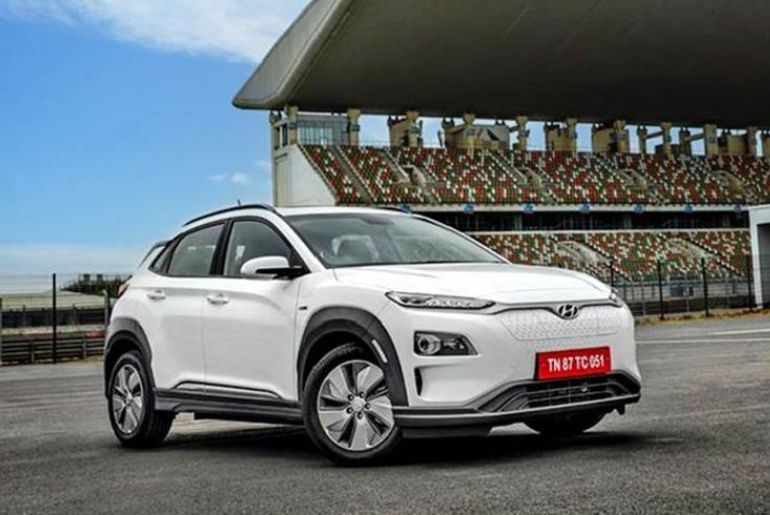After releasing the Kona Electric in July 2019 for five years, Hyundai has finally stopped selling it in India. The business will gradually replace the electric crossover—its initial electric offering for our market—with the more reasonably priced Creta EV early next year in India, even though it is selling the new-generation Kona Electric overseas.
The Hyundai Kona Electric is no longer available on the company website. On the other hand, depending on availability, sources have informed us that certain dealers have unsold inventory that they are offering at tempting prices.
At launch, Kona Electric SUVs were available as CKD vehicles with prices starting at Rs 25.30 lakh. Even though Hyundai eventually lowered costs by over Rs 2 lakh, its product was positioned higher and gained even less momentum in the market as a result of the arrival of more compact and reasonably priced e-SUVs like the Tata Nexon EV, MG ZS EV, and Mahindra XUV400.
The Kona Electric had a 39.2kWh lithium-ion battery pack that drove a front axle motor with 395Nm and 136 horsepower in India. After just one charge, the battery’s ARAI-rated range was 452 kilometers. Hyundai sold 2,329 Kona Electrics in India in the 59 months that it was available for purchase, or roughly 39 vehicles every month.
While many overseas markets, such as Indonesia, will see the launch of the new Kona Electric, there’s no news of this next-gen model coming to our shores. Hyundai will, however, bring in a “high volume” electric SUV to India in the form of the Creta EV, which is scheduled to go on sale by January.
As we reported earlier, the upcoming Creta EV will share a few things with the Kona Electric line-up. While the new mass-market e-SUV will borrow body panels, platform and a few other elements from the Creta to rein in costs, Hyundai will utilise the Kona EV’s motor, battery and some interior bits on the India-bound Creta EV.
While the Kona EV was positioned a tad higher in the segment, the heavily localised Creta EV will be introduced at a lower price point and aimed squarely at the competition. Apart from the Creta EV, the midsize e-SUV segment will see new entrants like the Tata Curvv EV and the born-EV twins from Toyota, and Maruti next year, all of which are expected to be priced in a similar range.


